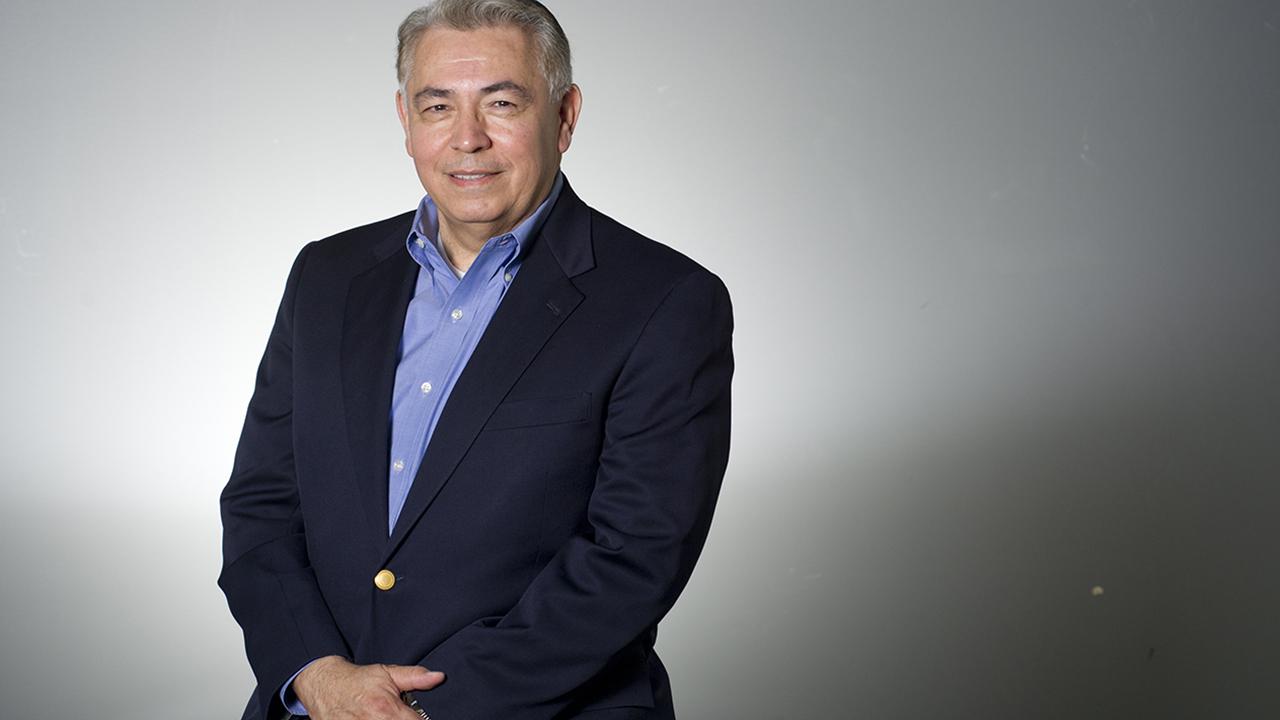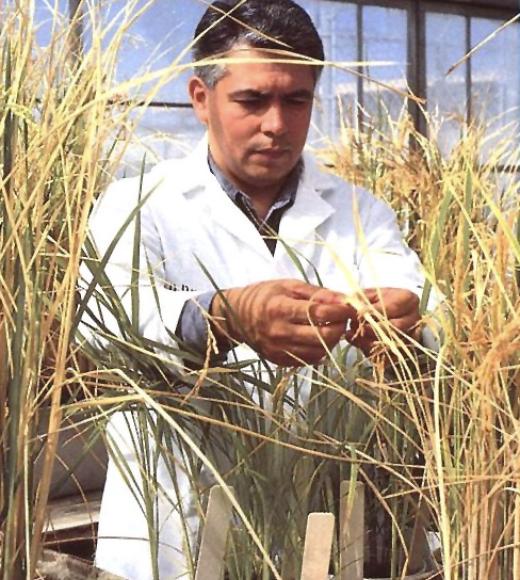
Undergraduate Research Award Honors Professor Emeritus Raymond Rodriguez
Award will support research pursuits for first-generation undergraduates
When it comes to education in the biological sciences, applied learning like undergraduate research is integral to the assimilation of knowledge. Through experiences in the laboratory, students acquire new skills and reinforce learnings from the lecture hall, taking techniques from the page to the pipette and laying the foundation on which they’ll build the rest of their careers.
For some students, undergraduate research experiences may seem out of reach, but philanthropy can help provide the resources they need to participate in such important educational endeavors.
Created to help increase equity in the biological sciences, the Raymond L. Rodriguez Undergraduate Research Award supports first-generation undergraduate students in their research pursuits over a summer or academic quarter.
Named for Professor Emeritus Raymond Rodriguez, Department of Molecular and Cellular Biology, the fund honors Rodriguez’s 40+ year career at UC Davis, celebrating not just his research accomplishments but also his teaching and mentorship.
“Mentoring is a privilege — a privilege provided by the student to the mentor,” said Rodriguez. “It allows the mentor to briefly step into the student’s life and hold their anxieties, insecurities and fears just long enough for them to catch their ‘intellectual breath' and move forward with greater confidence and joy.”
A career devoted to the biological sciences
Before becoming a professor at UC Davis, before his myriad publications and research discoveries, before the awards and fellowships, Rodriguez was a student. The son of migrant farmworkers and raised in the San Joaquin Valley, Rodriguez earned a bachelor’s degree in biology from California State University, Fresno in 1969. After that, he enrolled in a Ph.D. program in biology at the University of California, Santa Cruz.
After earning a Ph.D. in biology and working through multiple postdoctoral fellowships, Rodriguez joined the faculty of the University of California, Davis in 1977. As an Aggie, he focused his research on nutritional genomics, exploring how diet affects the human genome. Through his research, Rodriguez sought to develop innovative solutions to prevent, diagnose, and treat diseases attributed wholly or partially to diet.
With an ever-open entrepreneurial eye, Rodriguez also leveraged campus resources to extend the reach of higher education. In 2010, he co-founded Global HealthShare Initiative, an organization that delivers health solutions to communities facing extreme poverty; in 2013, he established UC Davis as the first university campus to host Intel’s Girls Who Code summer immersion course.
Academically inclined, entrepreneurial mind

Through his teaching and mentorship, Rodriguez inspired multiple generations of scientists and students. He was instrumental in the UC Davis ADVANCE program, which aims to increase the participation of women in the sciences and engineering fields, and the Center for the Advancement of Multicultural Perspectives on Science.
“Professor Rodriguez is a rarity,” said Sindy Law, ’95 B.S. in Genetics and ’98 M.S. in Genetics. Law worked as a teaching assistant for Rodriguez while studying for her graduate degree at UC Davis. “[Rodriguez] is successful yet humble and approachable. He is knowledgeable yet receptive. He is factual yet creative and innovative. While he is academically inclined, he is also entrepreneurial minded.”
Law recalled admiring Rodriguez for his ability to relate the information in his genetics lectures to big picture ideas. He was also a fountain of encouragement.
“He liked to use the quote ‘Knowledge is power’ in his lectures with respect to genetics,” said Law. “Specifically, he was trying to communicate that understanding the blueprint of life—the genetic material or the DNA—is critical and brings forth power. Personally, for me, I took that ‘Knowledge is power’ concept to everything I did from then on.”
According to Law, this axiom from Rodriguez is directly responsible for her continuous growth as a professional at the University of California, San Francisco, where she’s worked for nearly 24 years.
“Undoubtedly, Professor Rodriguez has influenced both my time at UC Davis and beyond in many incredible ways,” said Law. “I am eternally grateful to him and his mentorship.”
Inspiring the next generation
Sometimes what we see in a mentor is a reflection of ourselves. Such was the case for Eduardo Ramirez, ’17 B.S. in Biochemistry and Molecular Biology, who met Rodriguez at a Society for the Advancement of Chicanos/Hispanics and Native Americans in Science (SACNAS) conference during his senior year.
“It was very impactful for me to meet another first-generation Latino in science, especially someone as prestigious and established as Dr. Rodriguez,” said Ramirez, who is now pursuing a Ph.D. in Interdisciplinary Life Science at Purdue University. “Sometimes in academia and research it can be difficult to connect with professors due to cultural and linguistic differences, but with Dr. Rodriguez I found it easy and relaxing to talk with somebody from a similar background and upbringing.”
At the time, Ramirez was facing self-doubt. He wanted to pursue graduate studies but didn’t think he’d be accepted to any institution. Through his conversations with Rodriguez, Ramirez found within himself the confidence to pursue his graduate studies.
“Dr. Rodriguez helped me see value within myself and what I had to offer as a graduate student, even if I didn't see it within myself at the time,” said Ramirez. “With his advice and encouragement, I decided to apply to masters programs and was overwhelmed with joy when I received an admission offer from UC San Diego and was very thankful to Dr. Rodriguez and my other mentors from UC Davis for their support.”
For Ramirez, Law, and countless other students, Rodriguez provided the know-how and encouragement necessary to assist them on their paths to success. The establishment of the Raymond L. Rodriguez Undergraduate Research Fund is a testament to the indelible impact Rodriguez had on his students not just across the campus but across generations.
